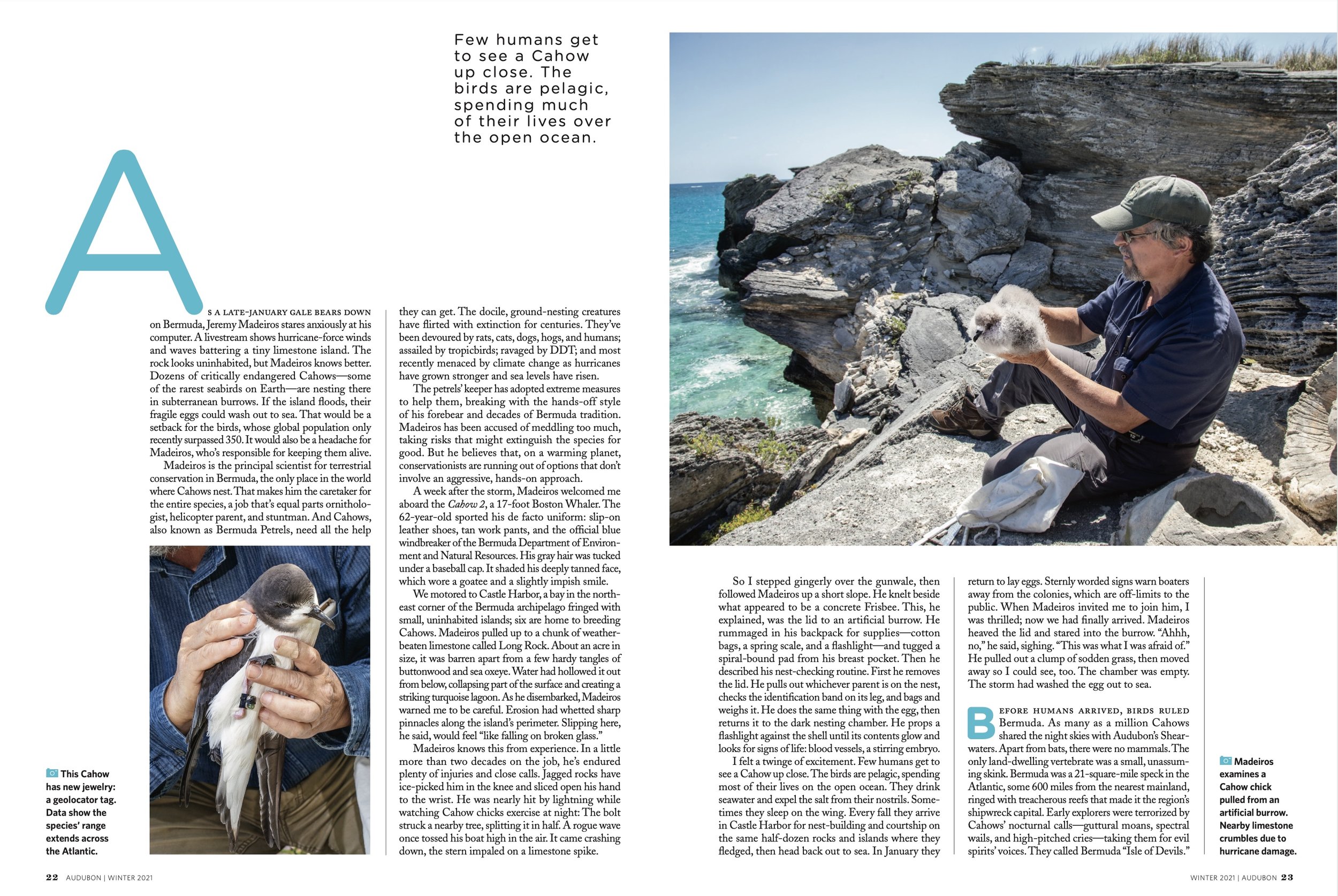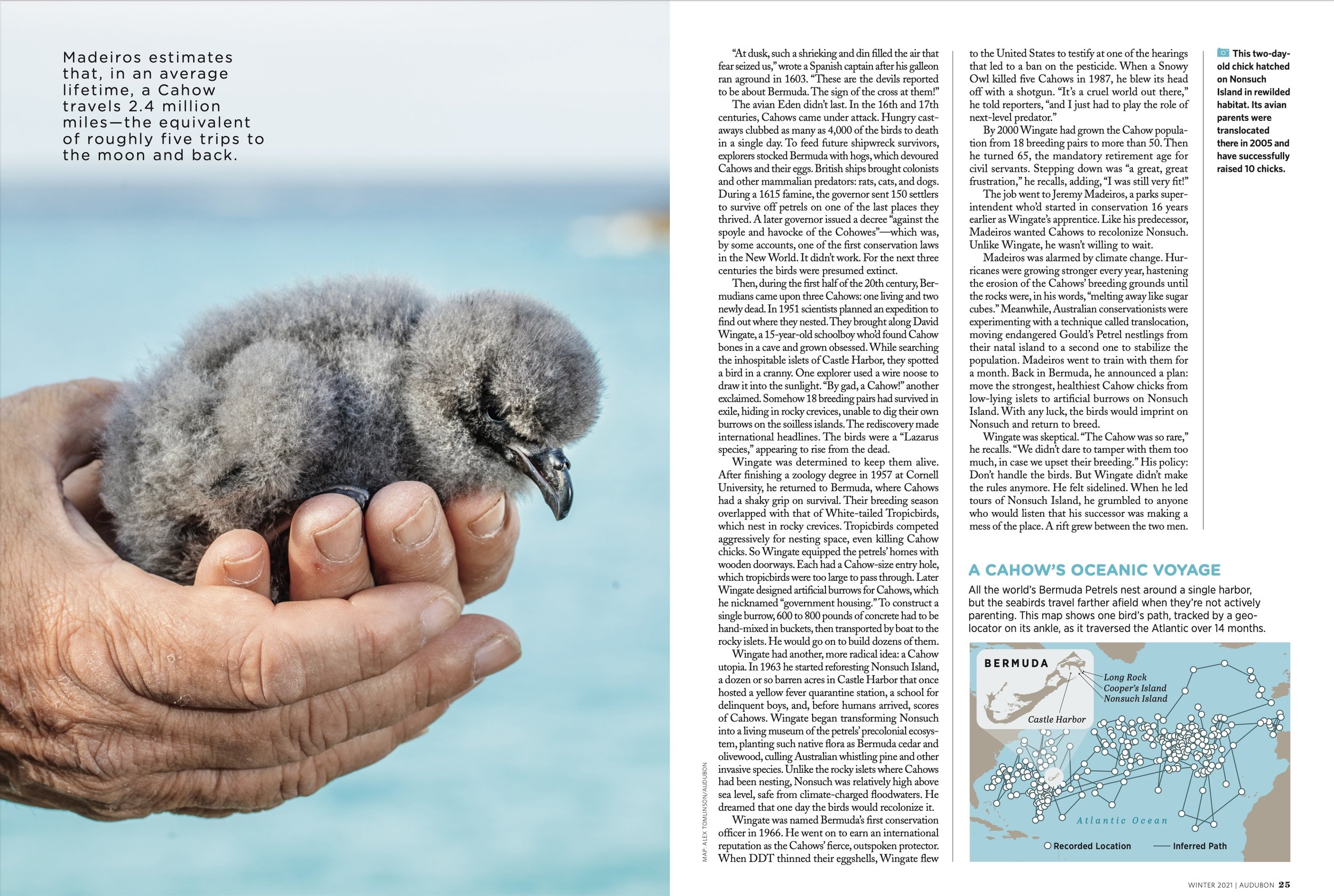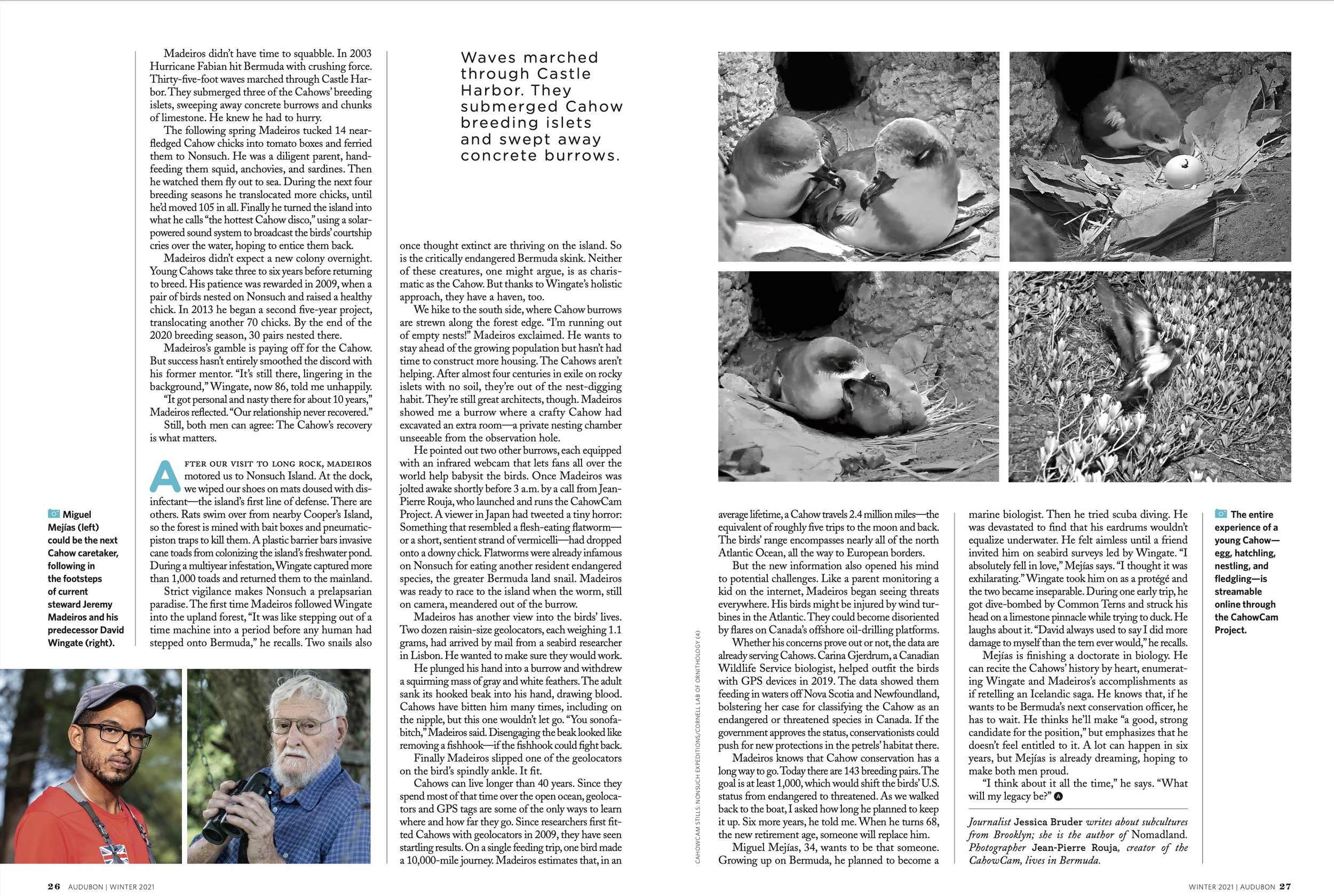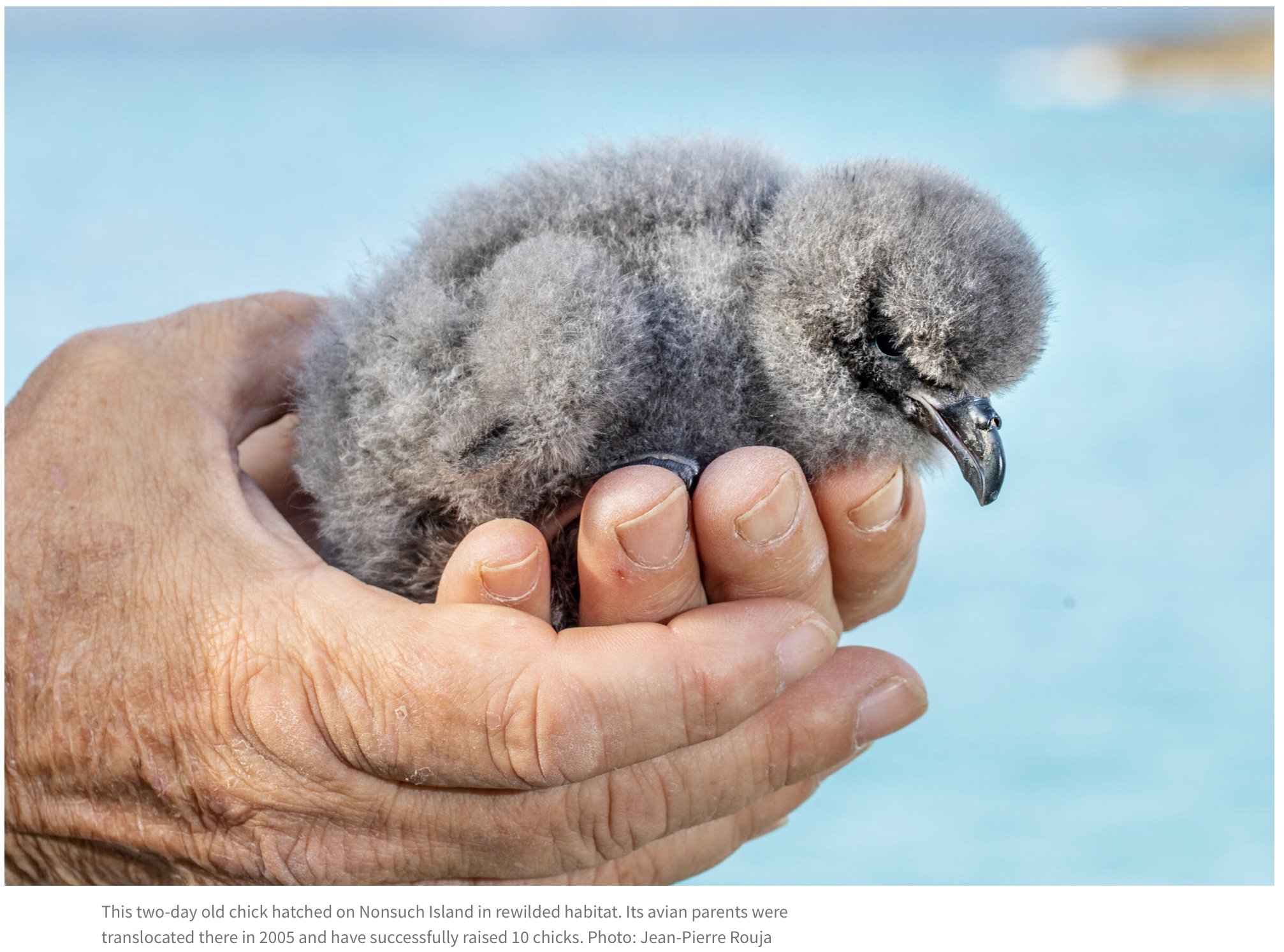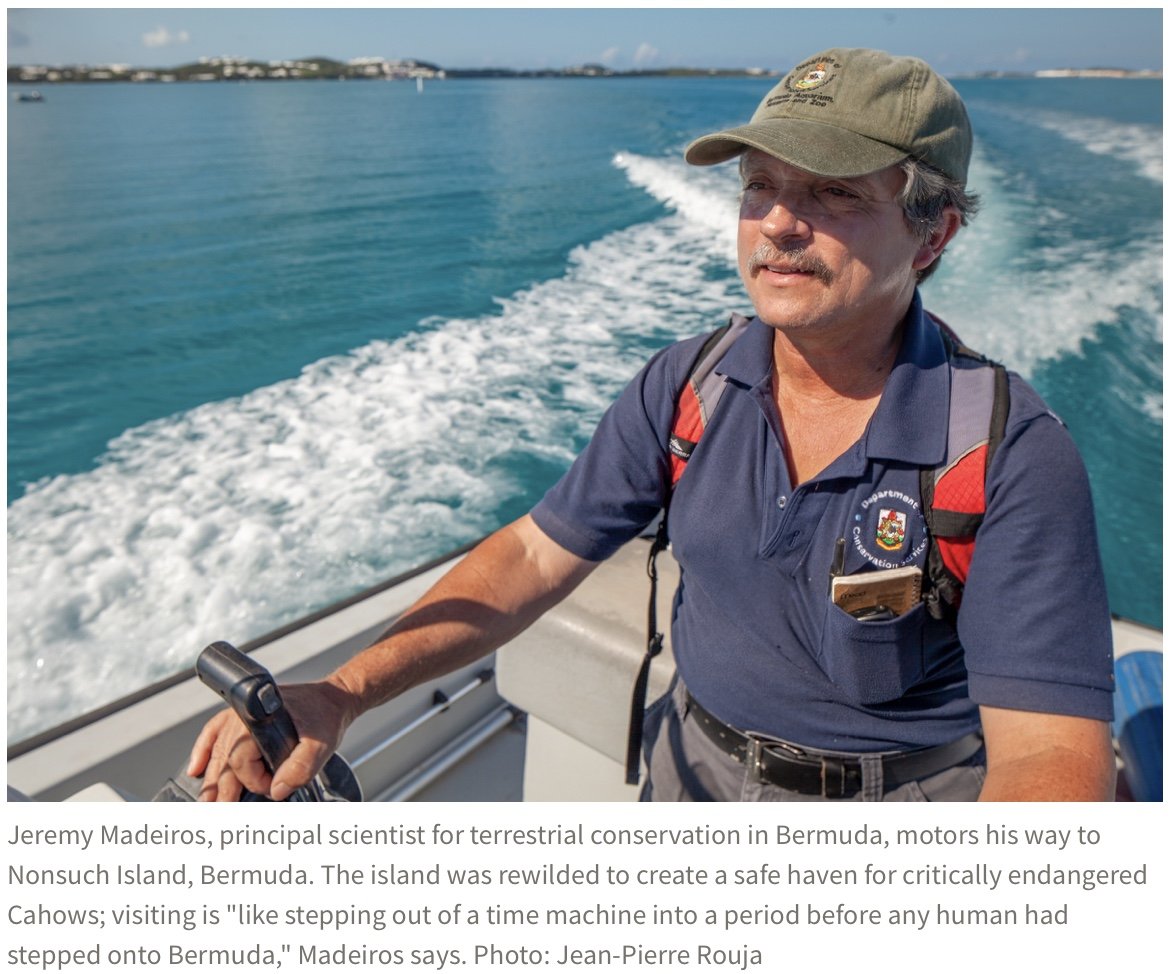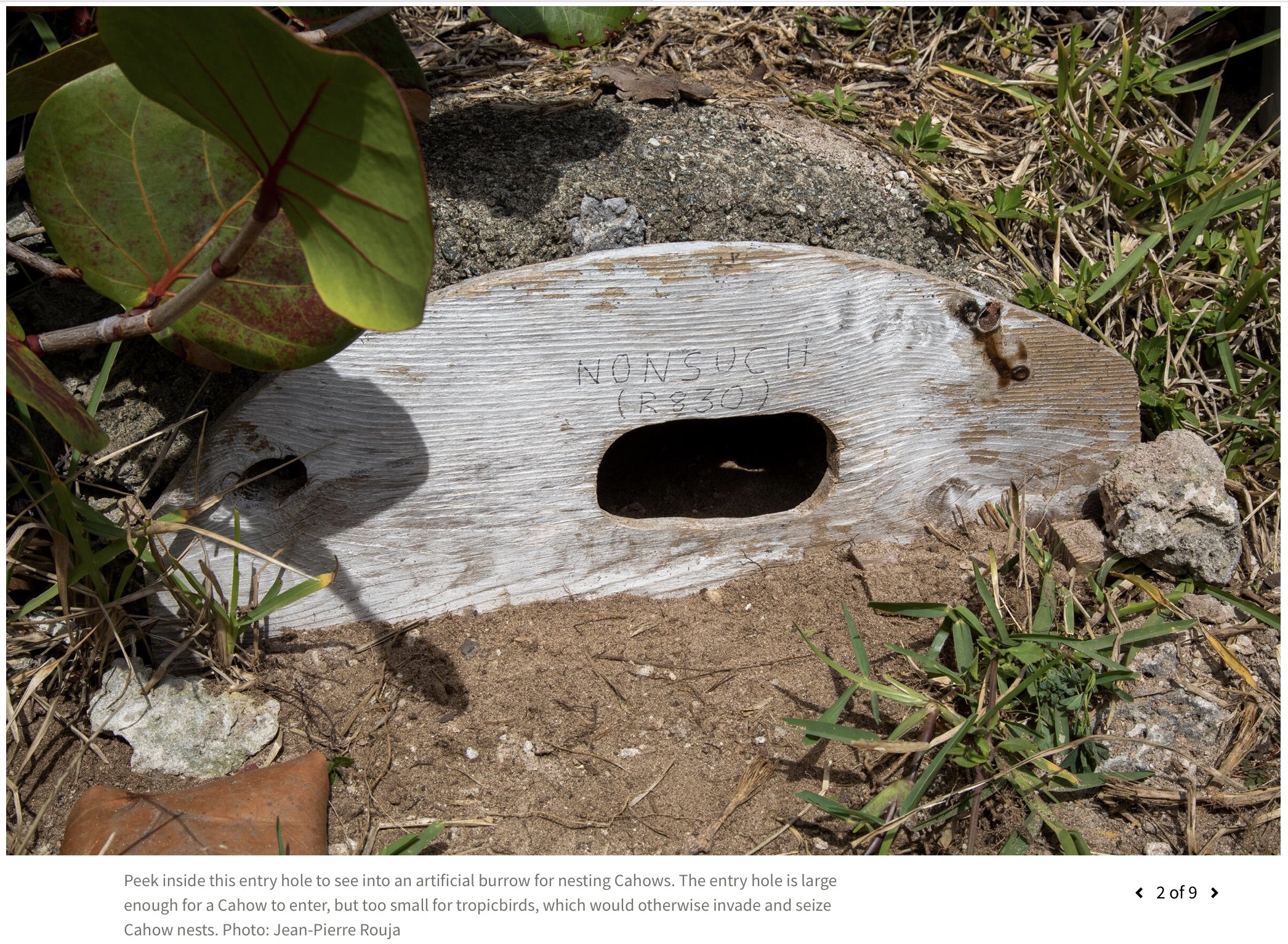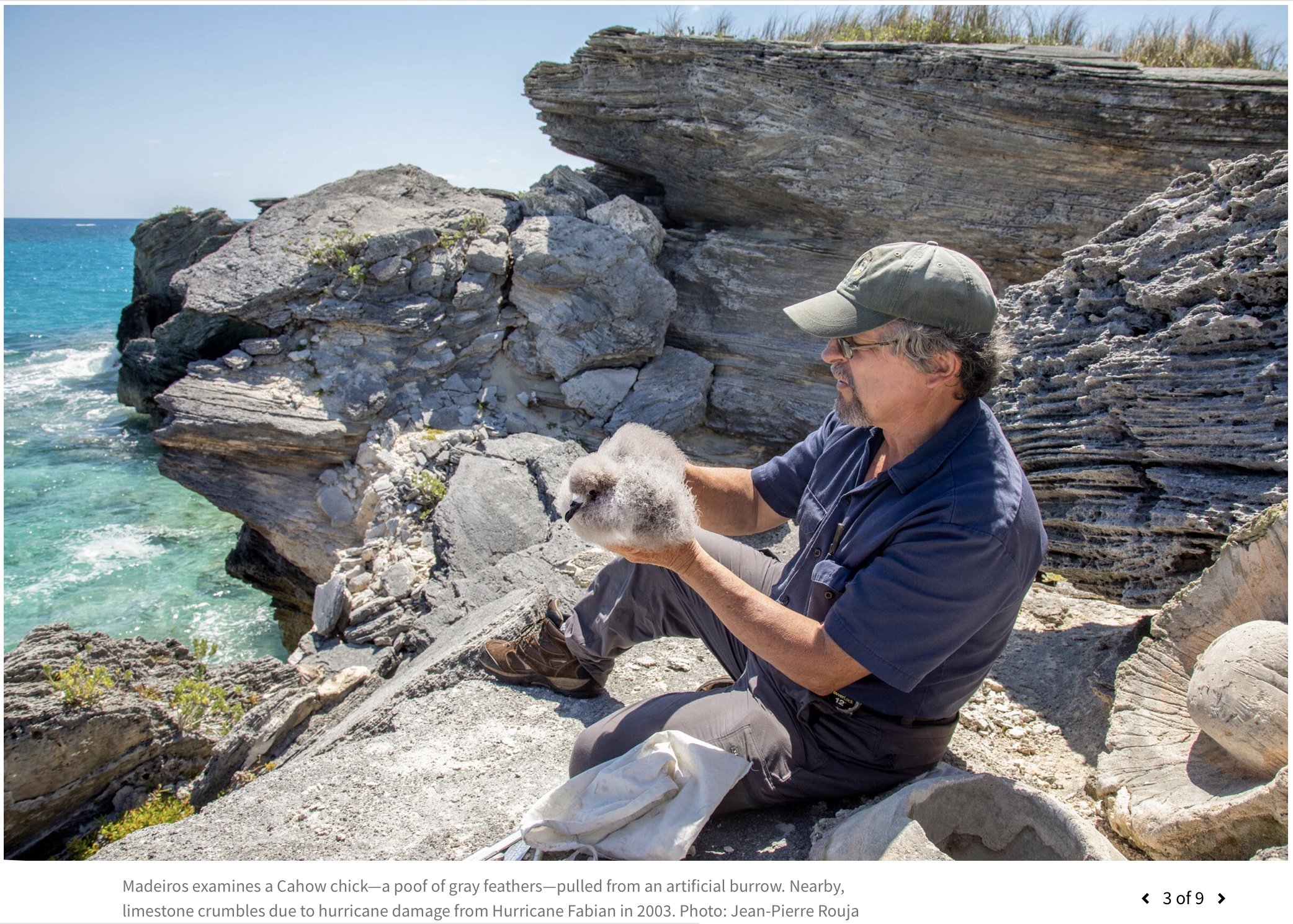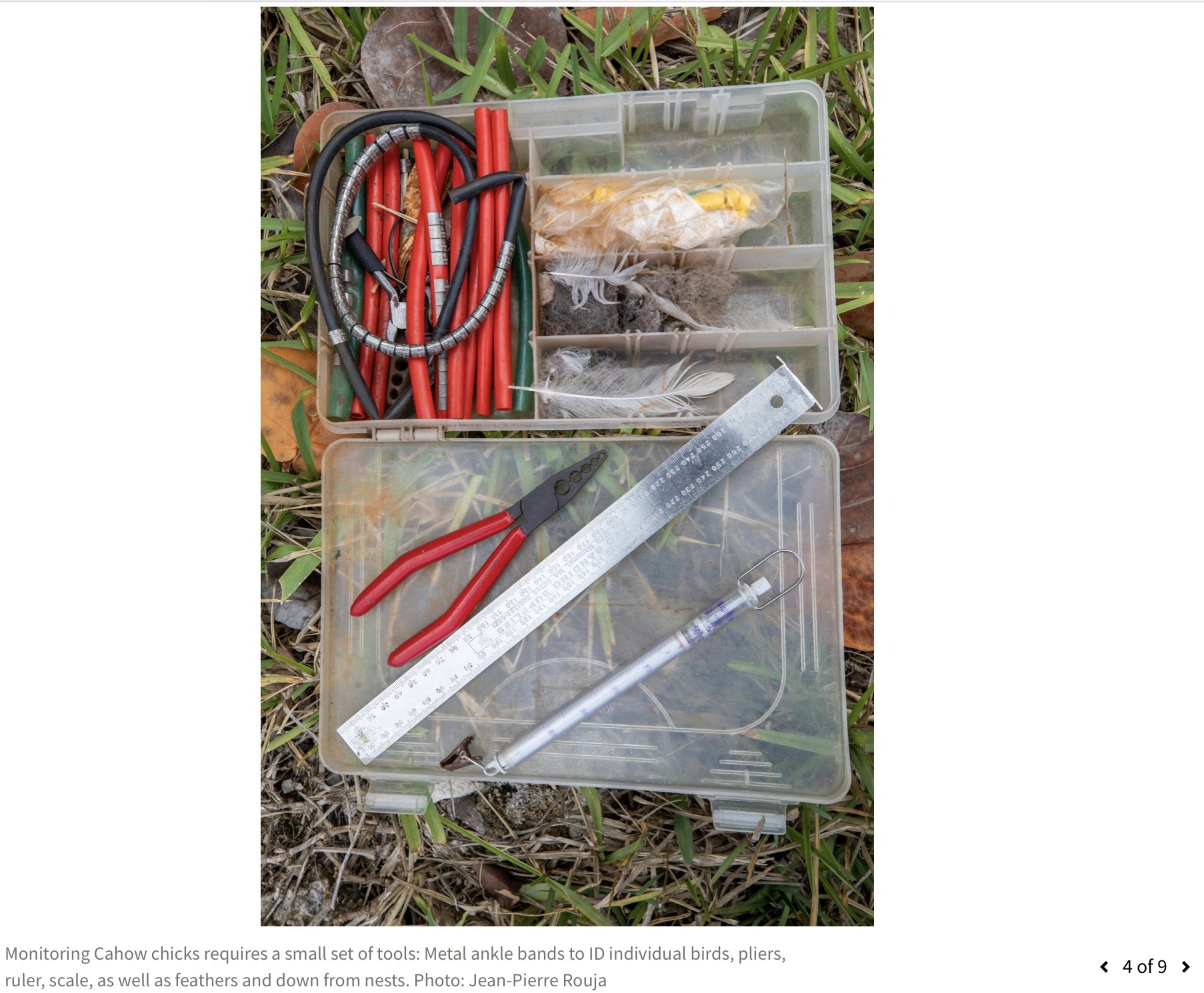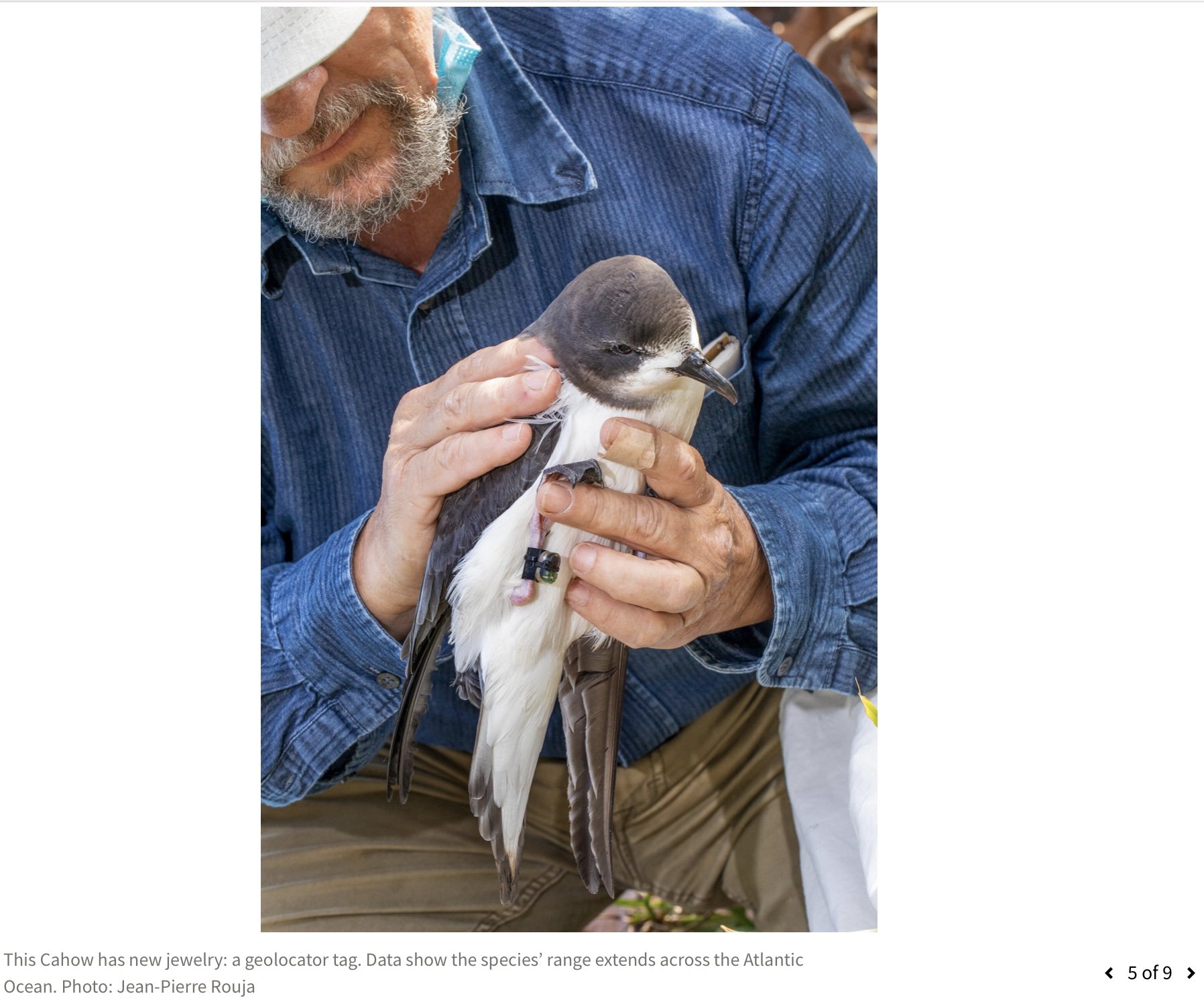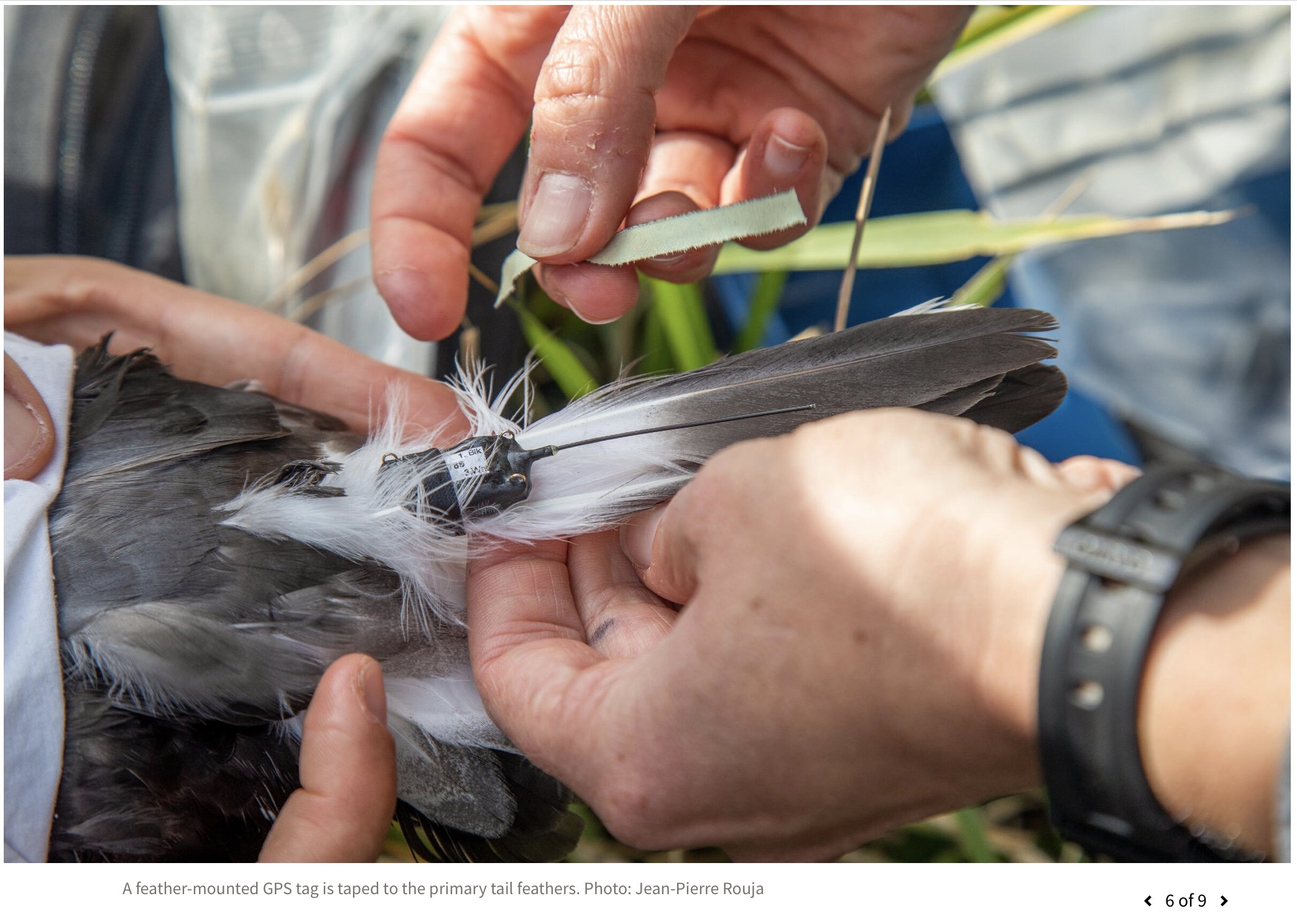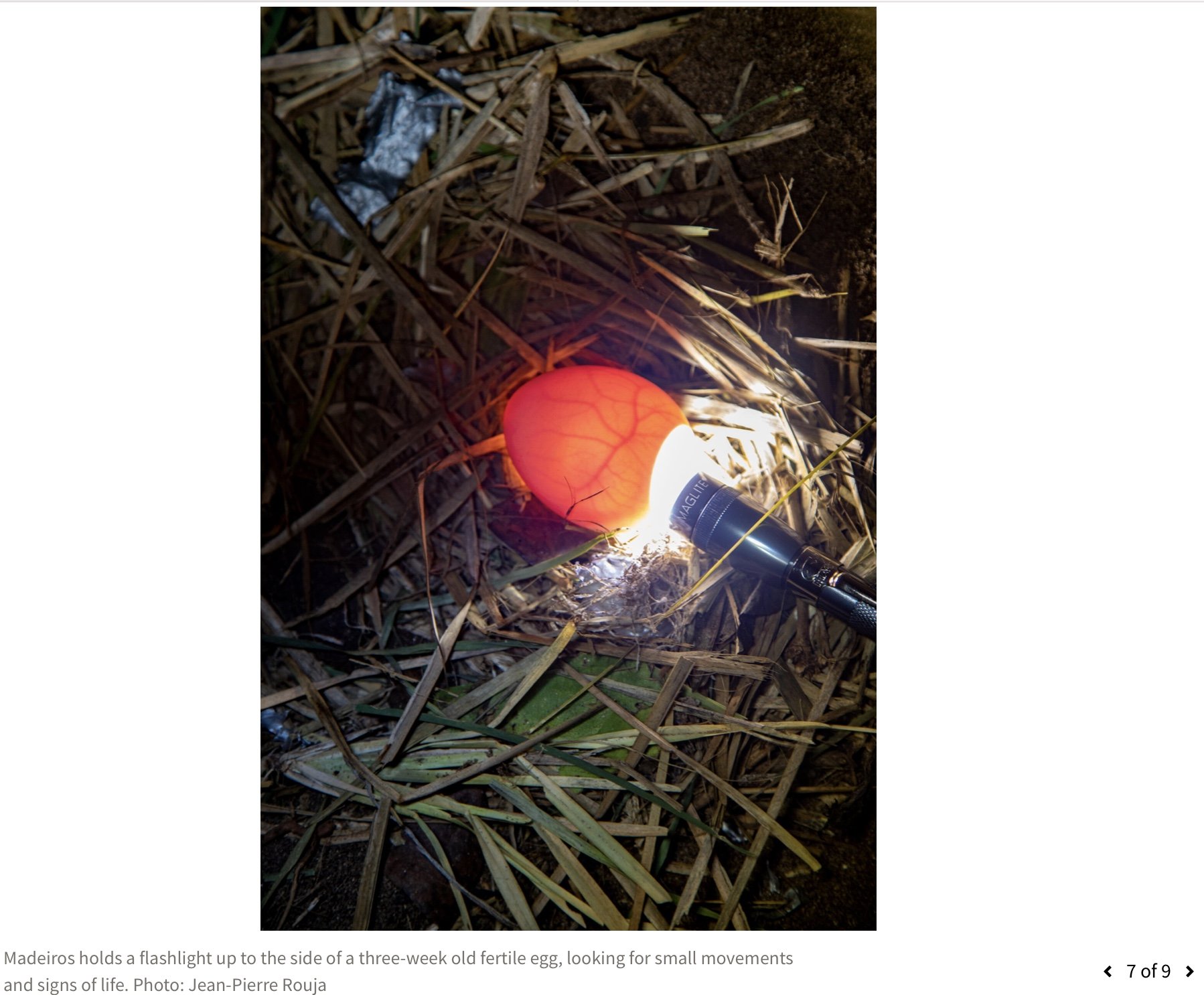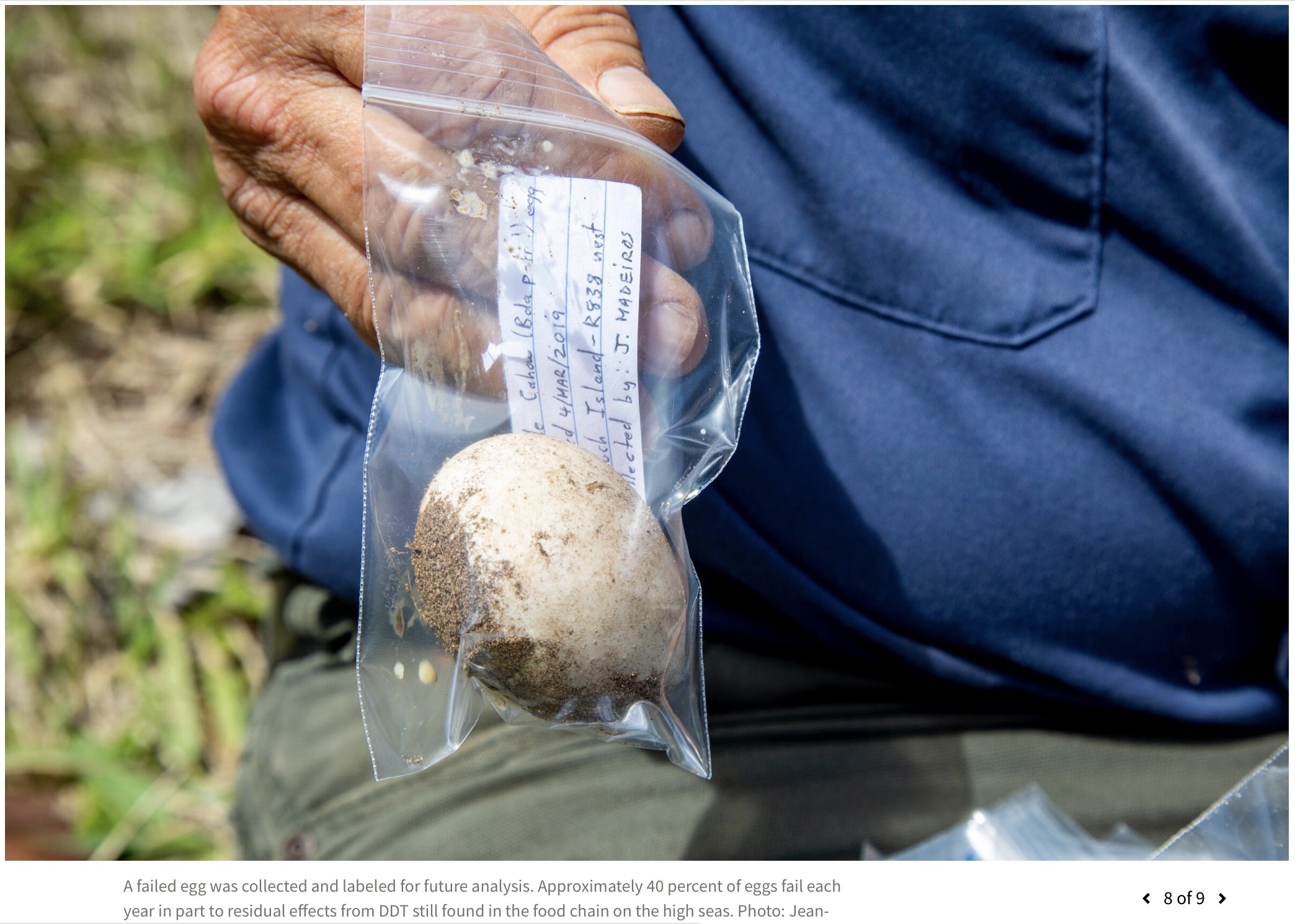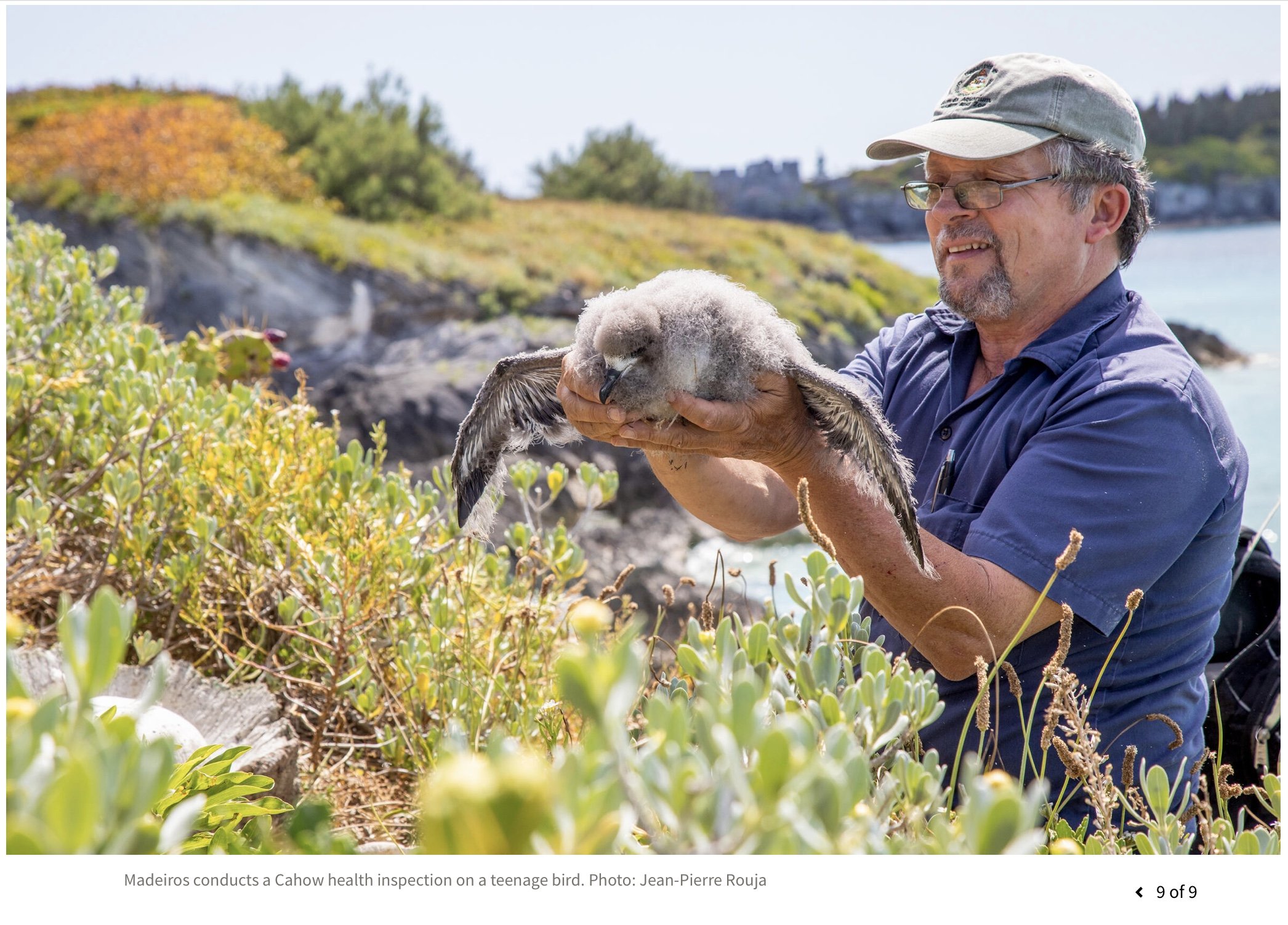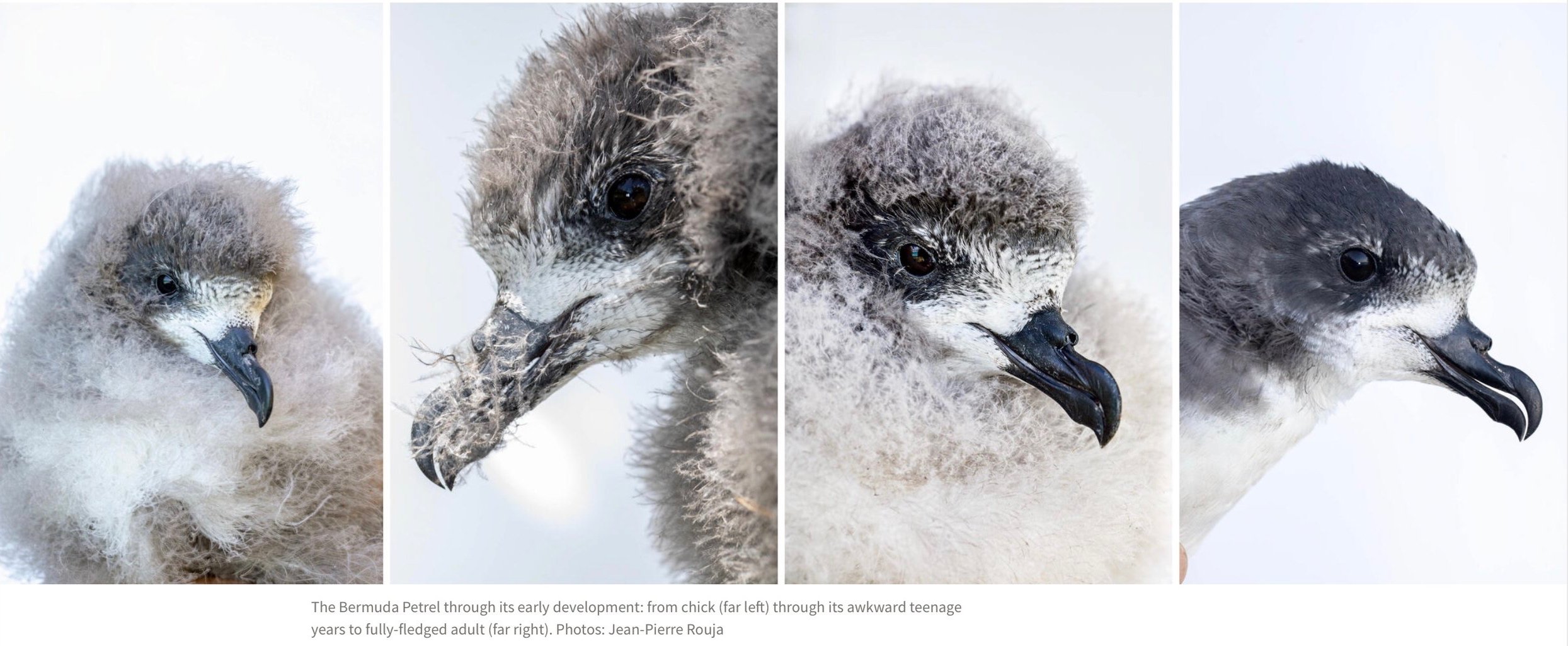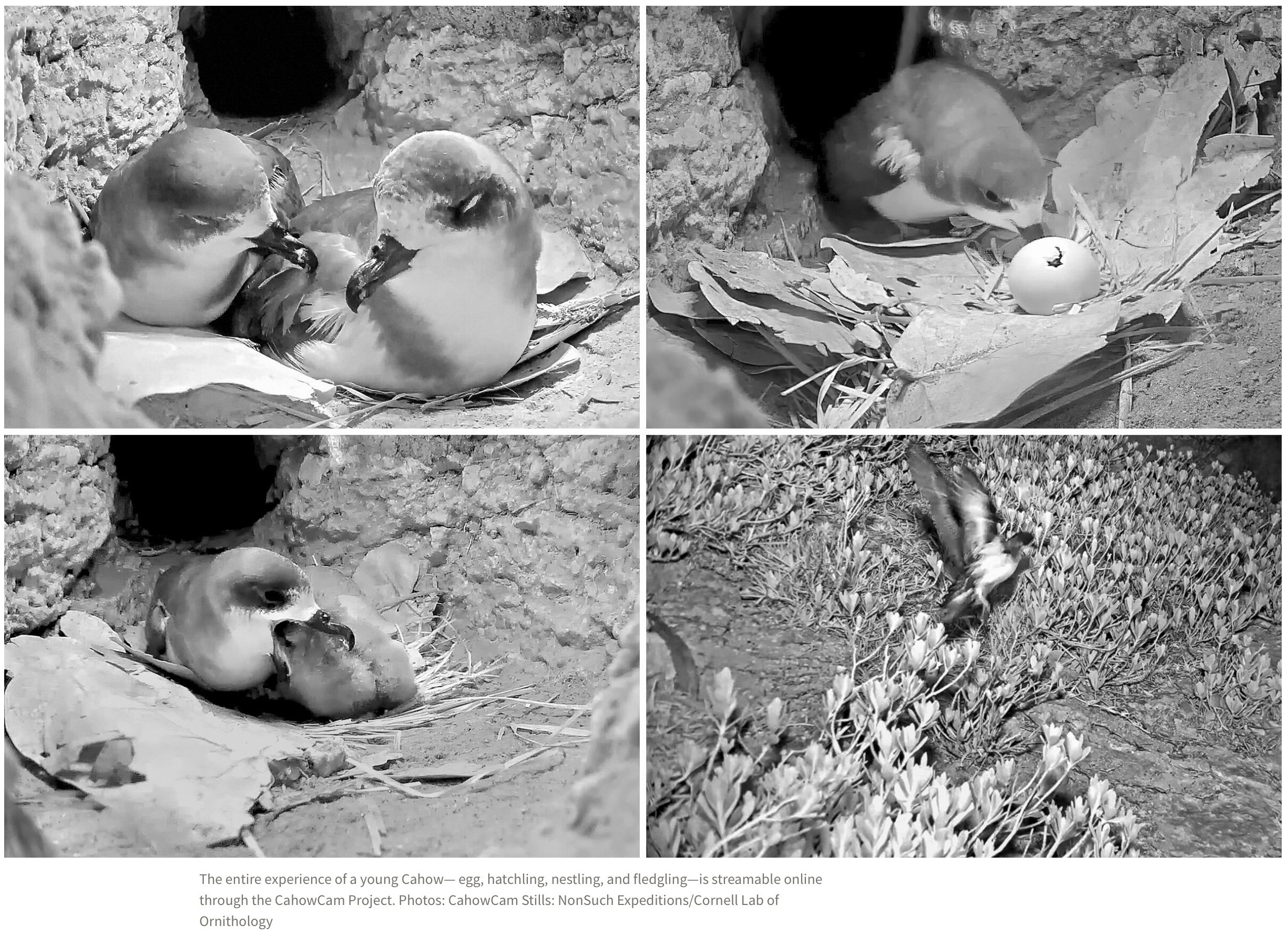The Winter edition of the U.S. National Audubon Magazine has a major feature on the Cahow project with the cover and other photography by Nonsuch Expeditions founder, and CahowCam creator Jean-Pierre Rouja.
The in-depth article written by author Jessica Bruder (whose book was the inspiration for this year’s Oscar-winning Nomadland film) documents Jeremy Madeiros’s daily activities and his groundbreaking Cahow Translocation Project along with the history of the original Cahow Recovery Program started by his predecessor David Wingate, and the dynamics between the two conservationists.
Jeremy Madeiros: " It was an honor for the Cahow Recovery Program to be selected, for this feature, as the National Audubon Magazine is one of the larger environmentally-themed publications in the United States. With over 400,000 readers it goes a long way towards fulfilling the program's objective of public outreach and education, as do the live-stream Cahow Cams, both for Bermudians and for international audiences. I would also like to acknowledge other staff at the Department of Environment and natural Resources, especially Conservation Officer Peter Drew and the Terrestrial Conservation Crew, led by foreman Kiwon Furbert, that have carried out much work with the Recovery Program, and been instrumental in enabling Bermuda's unique National Bird to continue its inspiring recovery".
J-P Rouja | Nonsuch Expeditions Founder / CahowCam Developer: “Our CahowCams (now in collaboration with the Cornell Lab of Ornithology) are also featured including screen grabs taken from the LiveStreams, and we look forward to engaging with the hundreds of thousands of Audubon members and readers as they logon to our CahowCams just in time to witness the return of the Cahow pairs to lay their single egg in early January.
It was great to work with their photo editors who along with requesting new images, gave me an excuse to go through the thousands of photos taken during the now 10-year-old CahowCam project, alongside the weekly update videos that I produce throughout each nesting season.”
“Having one of my photos used for the cover was already amazing, however the fact that the subject they selected was “Poppy” our 2021 CahowCam 2 star, made it all the more iconic as:
Its parents were both translocated to and then fledged from Nonsuch Translocation Colony A in 2005.
They first returned in 2009 and produced their first egg in 2010 since when they have produced a single egg each year, for 12 years.
From these they have successfully fledged 10 chicks, making them one of the most successful pairs in the Colony.
It has Band # E0782 and is from burrow #R832 from which the Nonsuch Expeditions CahowCam2 is LiveStreaming and was named “Poppy” by Nonsuch Expeditions junior explorer Sophie Rouja
It hatched as seen live on camera on March 9th at 9:42 pm and fledged again on camera on June 5th at 10:43pm
When the cover photo was taken on May 23rd it was 75 days old, weighed 375 grams, had a wing chord of 210 mm and its tarsus was 39.4 mm. Its bill length was 28 mm and bill depth 10.9mm, indicating that it is most likely a female.
When I provided the above caption to Audubon they said it was the most detailed they had ever seen, but this just further highlights the level of detail that Jeremy has been logging for virtually all members of the species.”
An online version of the article can be found here, where you can also become a member and receive a copy of the magazine: https://www.audubon.org/magazine/winter-2021/it-takes-helicopter-parent-rescue-rare-seabird
The 2022 Cahow nesting season can be watched LIVE here: www.nonsuchisland.com/live-cahow-cam



